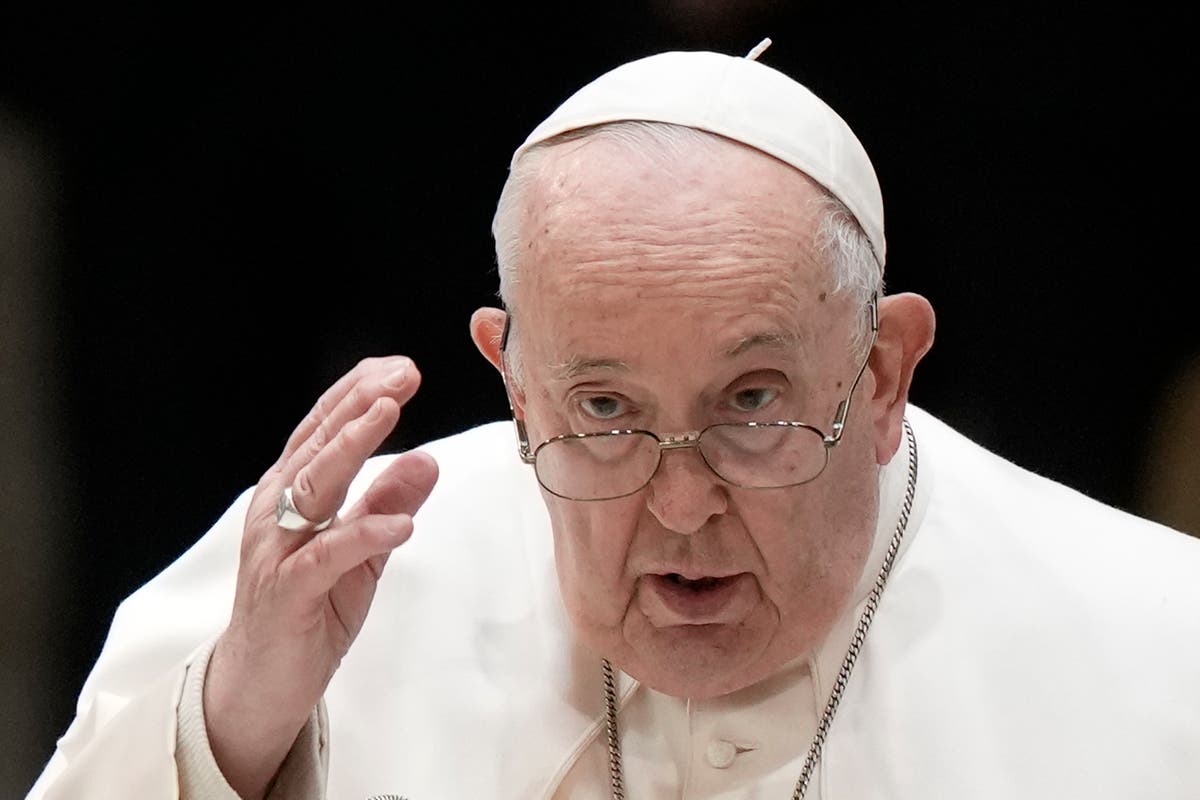Pope Francis has urged Vatican bureaucrats to avoid “rigid ideological positions” that prevent them from understanding today’s reality
Pope Francis urged Vatican bureaucrats Thursday to avoid “rigid ideological positions” that prevent them from understanding today’s reality, an appeal made days after he formally allowed priests to bless same-sex couples in a radical change of Vatican policy.
Francis used his annual Christmas greeting to the Holy See hierarchy to encourage the cardinals, bishops and laypeople who run the Vatican to listen to one another and to others so they can evolve to truly offer service to the Catholic Church.
Speaking in the Hall of Blessings, Francis told them it was important to keep advancing and growing in their understanding of the truth. Fearfully sticking to rules may give the appearance of avoiding problems but only ends up hurting the service that the Vatican Curia is called to give the church, he said.
“Let us remain vigilant against rigid ideological positions that often, under the guise of good intentions, separate us from reality and prevent us from moving forward,"the pope said. "We are called instead to set out and journey, like the Magi, following the light that always desires to lead us on, at times along unexplored paths and new roads.”



I mean, there are already plenty, for example, Peter III, who leads a Spanish church that believes they are the rightful Church. (Also, antipope is a subjective word, like heretic. From the perspective of various sects, the Pope Francis is the antipope.)
Nothing stops you from calling yourself Pope and claiming you’re the rightful leader of the Church, hereby making you an antipope to the eyes of the Church.
Now is there going to be a relevant antipope, that’s a lot less likely.
The relevancy of antipopes hinged on the political power of the pope. Having the pope at your beck and call was an extremely powerful tool in the Middle Ages. But nowadays, between the secularization of most Catholic countries, and the massive loss of influence of the Catholic Church, an antipope would only have as much influence as his followers would give him, especially since they wouldn’t have the support of the Holy See or the Church.
I thought the Church claimed an unbroken line of popes going back to the apostle Peter.
Wouldn’t any competitor only have a legitimate claim if they named their first pope during the brief downtime between popes? Otherwise they’re just another protestant sect.
Some did (the Spanish church from the example I gave named their first pope after the death of Paul VI in 1976), but nothing stops you from having your own conclave of bishops, and have them say that the current Pope has been judged inept to rule (although that has never happened before in the Holy See).
Which would make the line unbroken, the same way that the line was still unbroken when Benedict XVI resigned and Francis was elected pope.